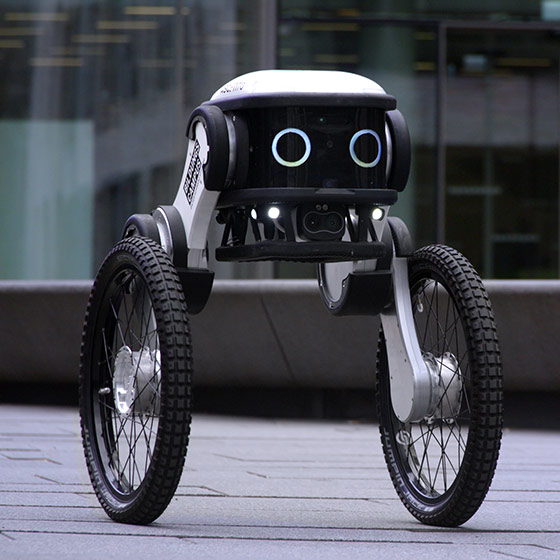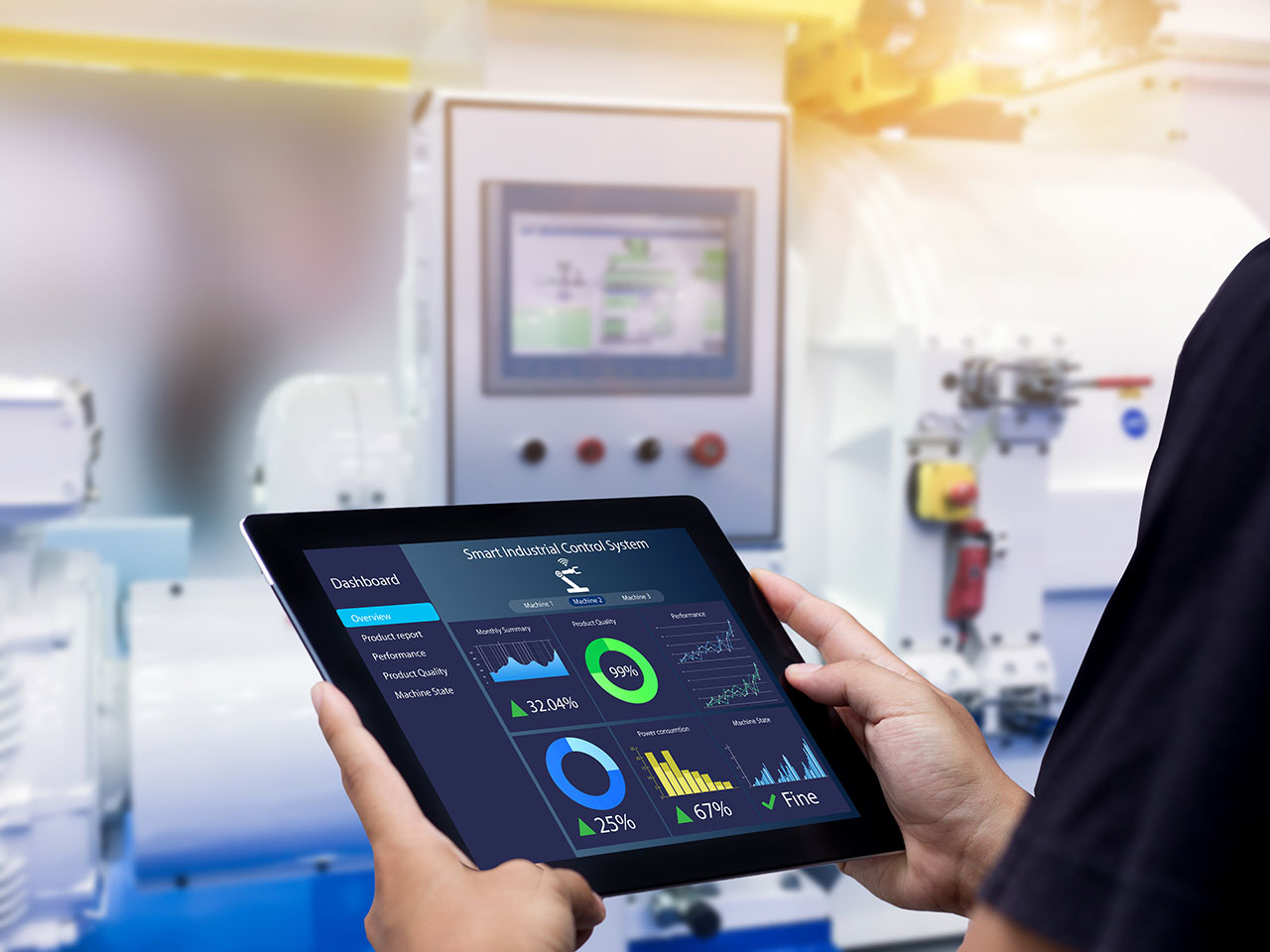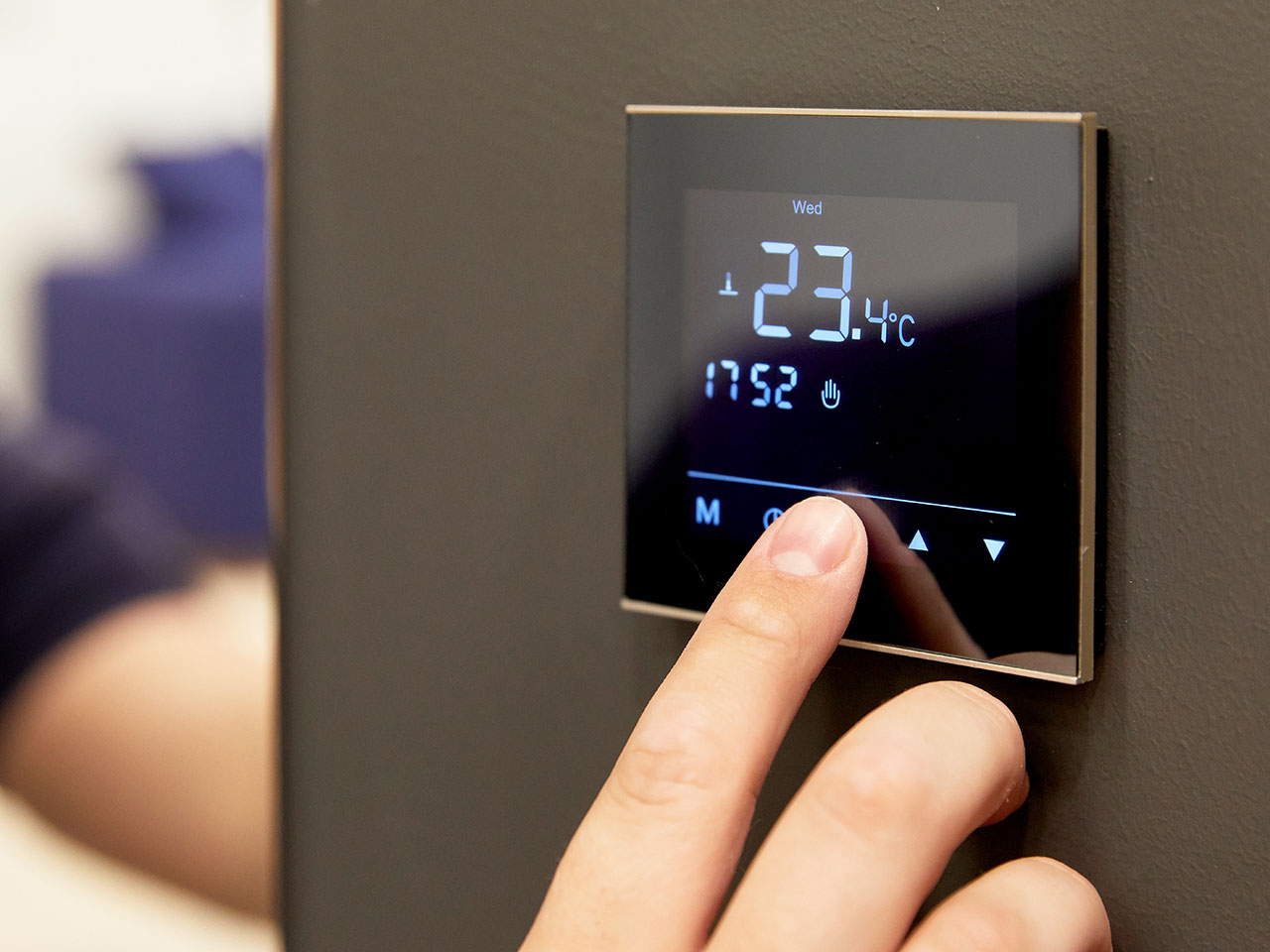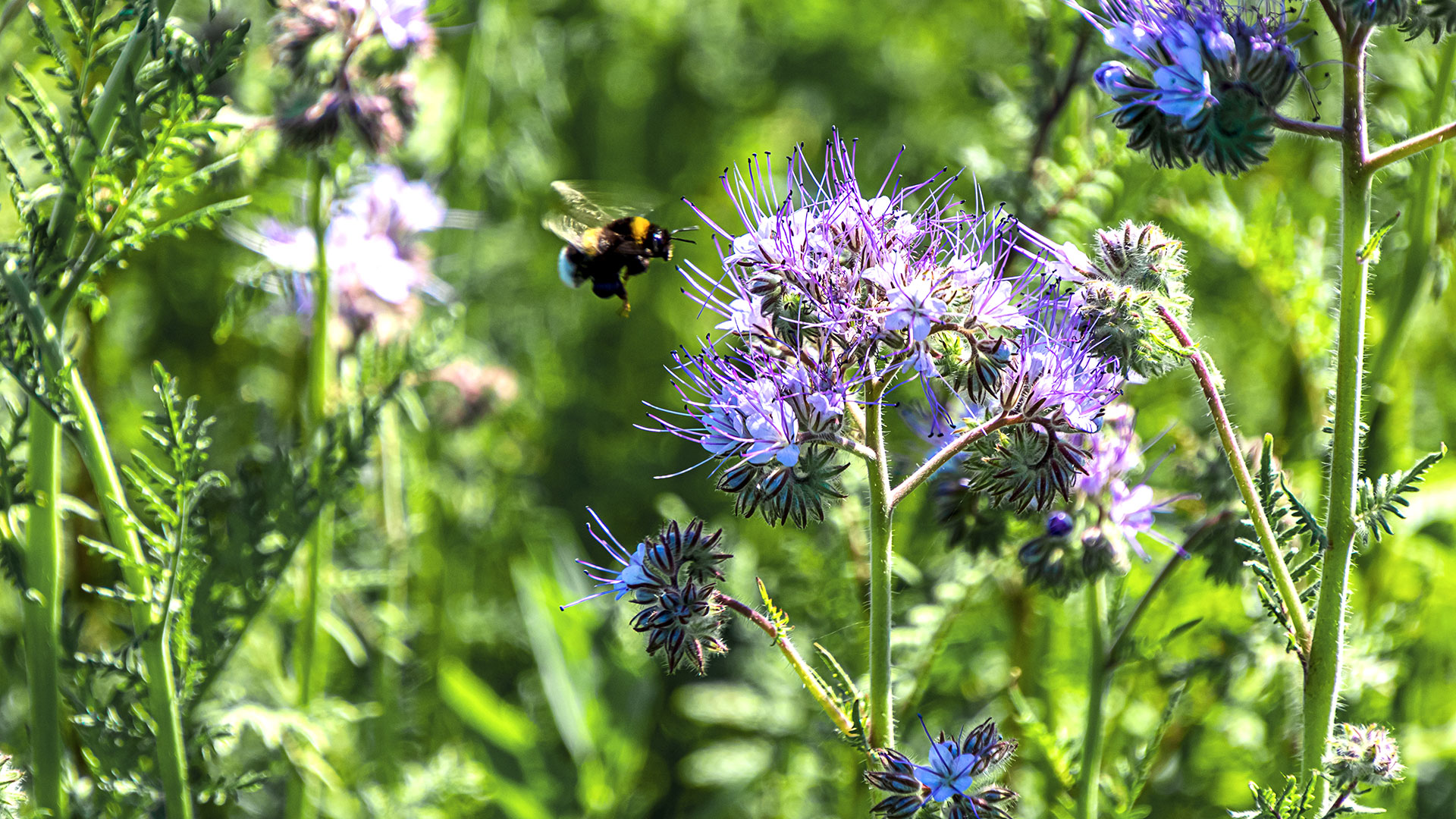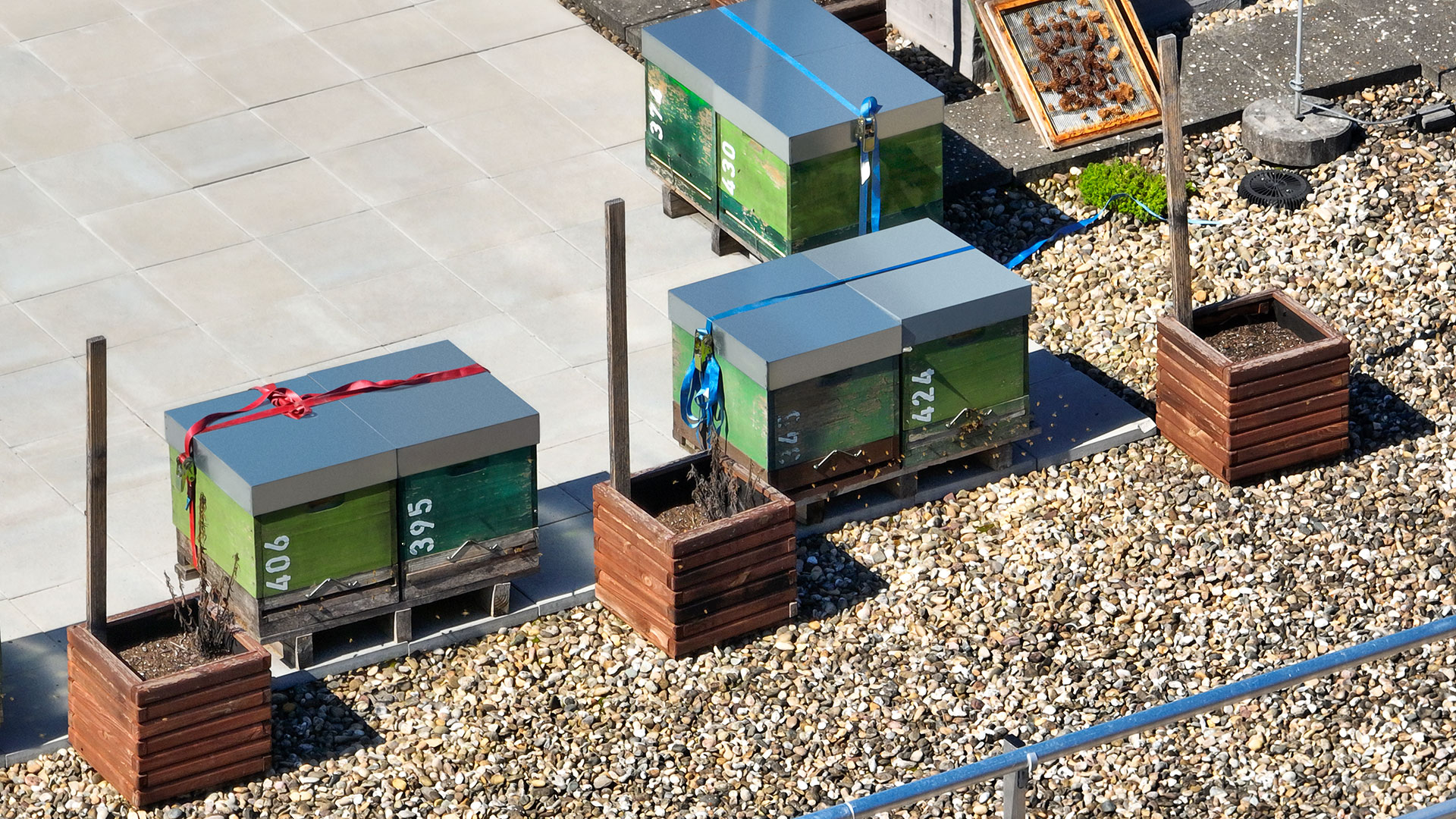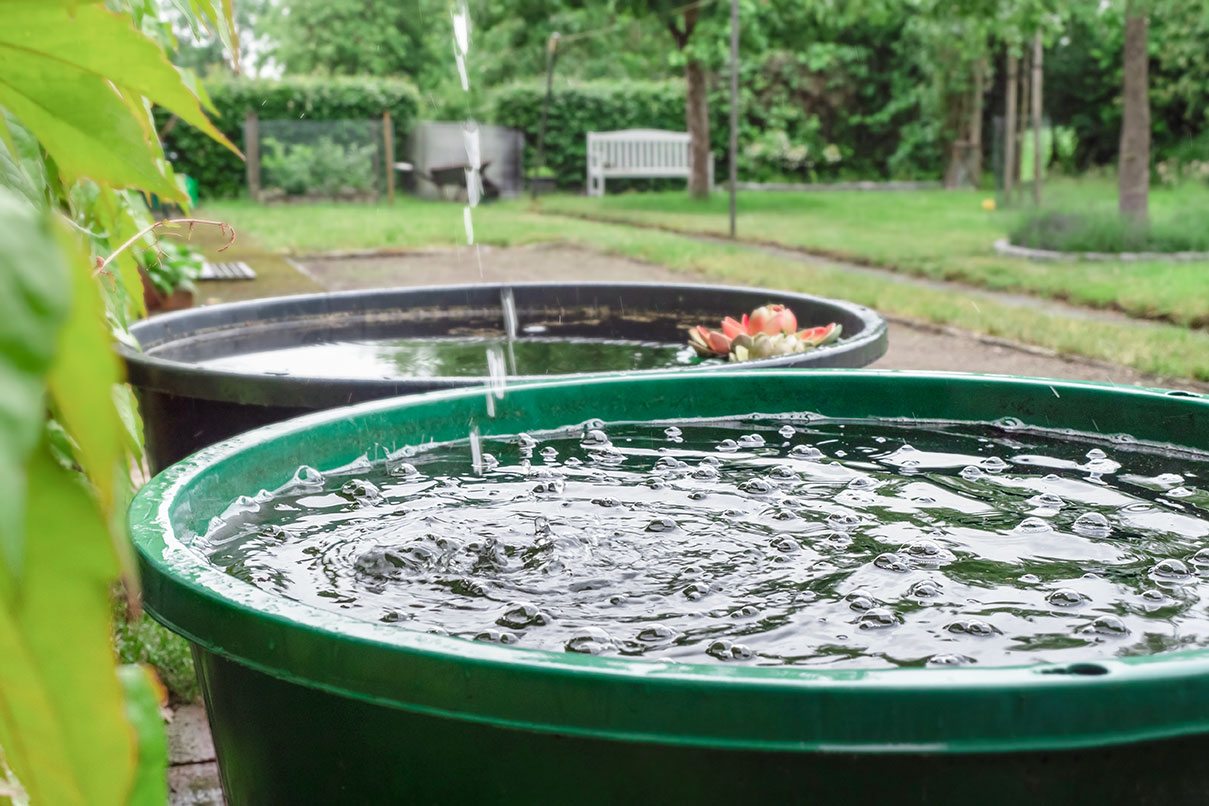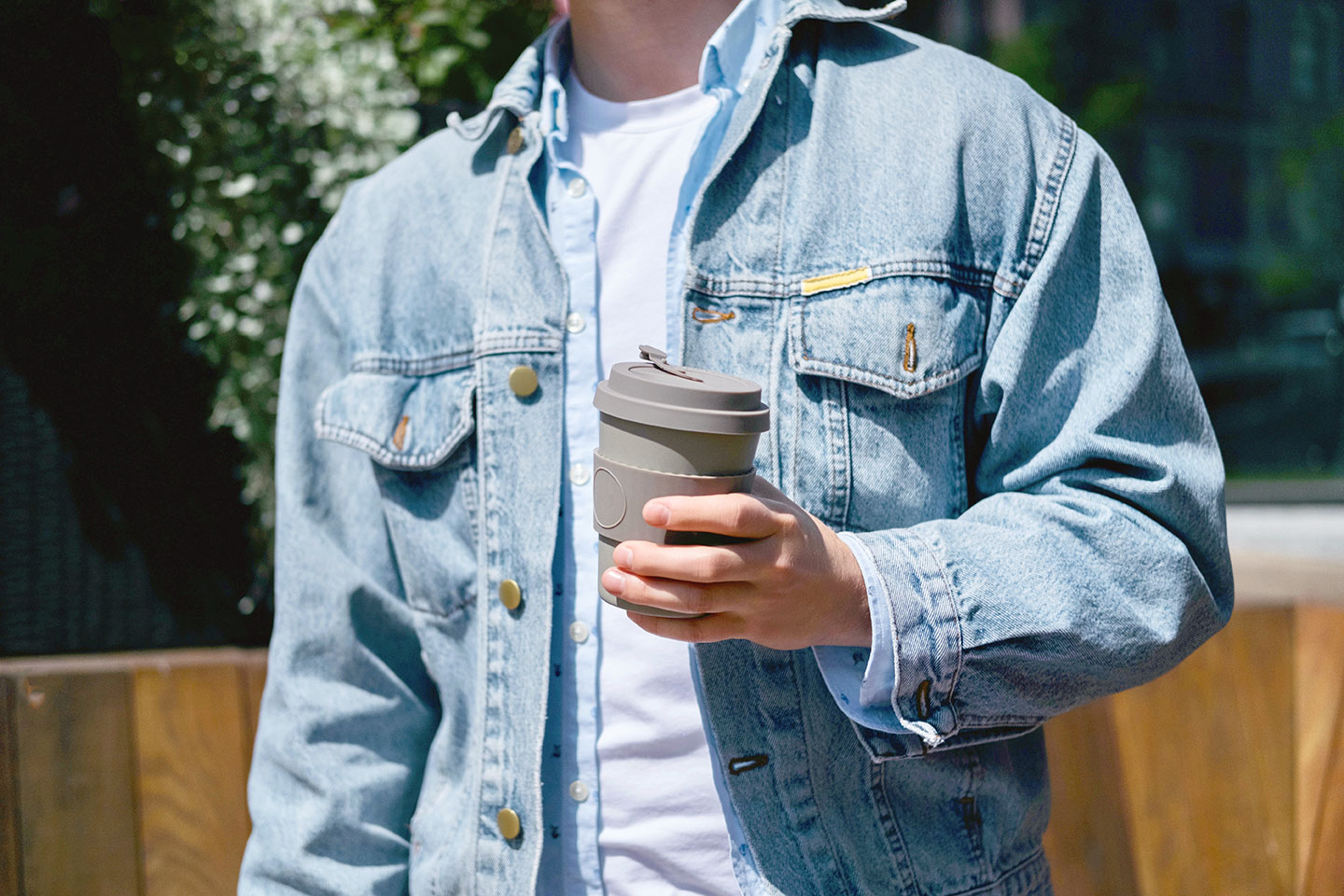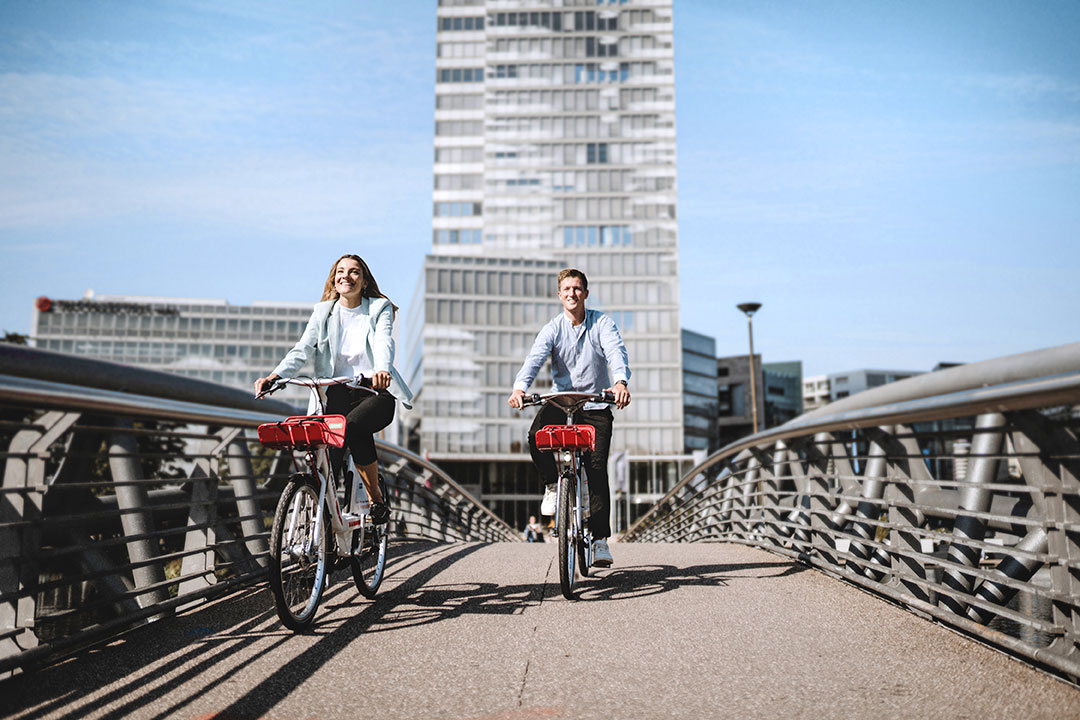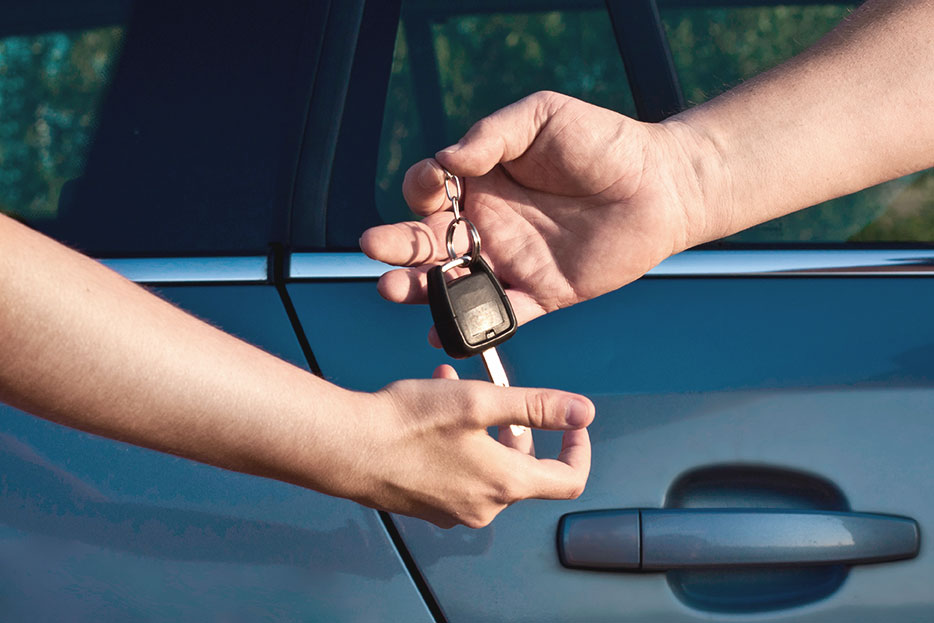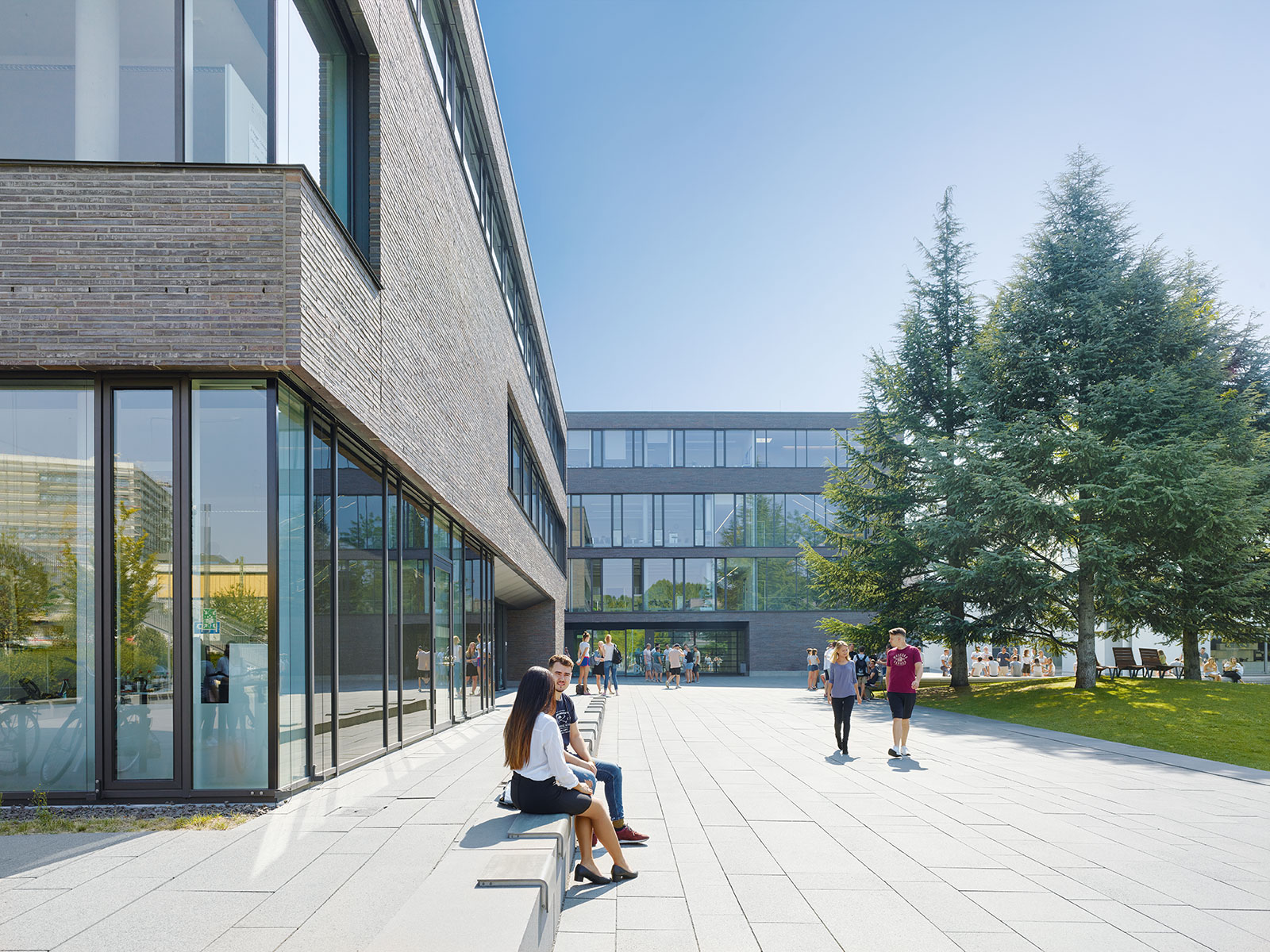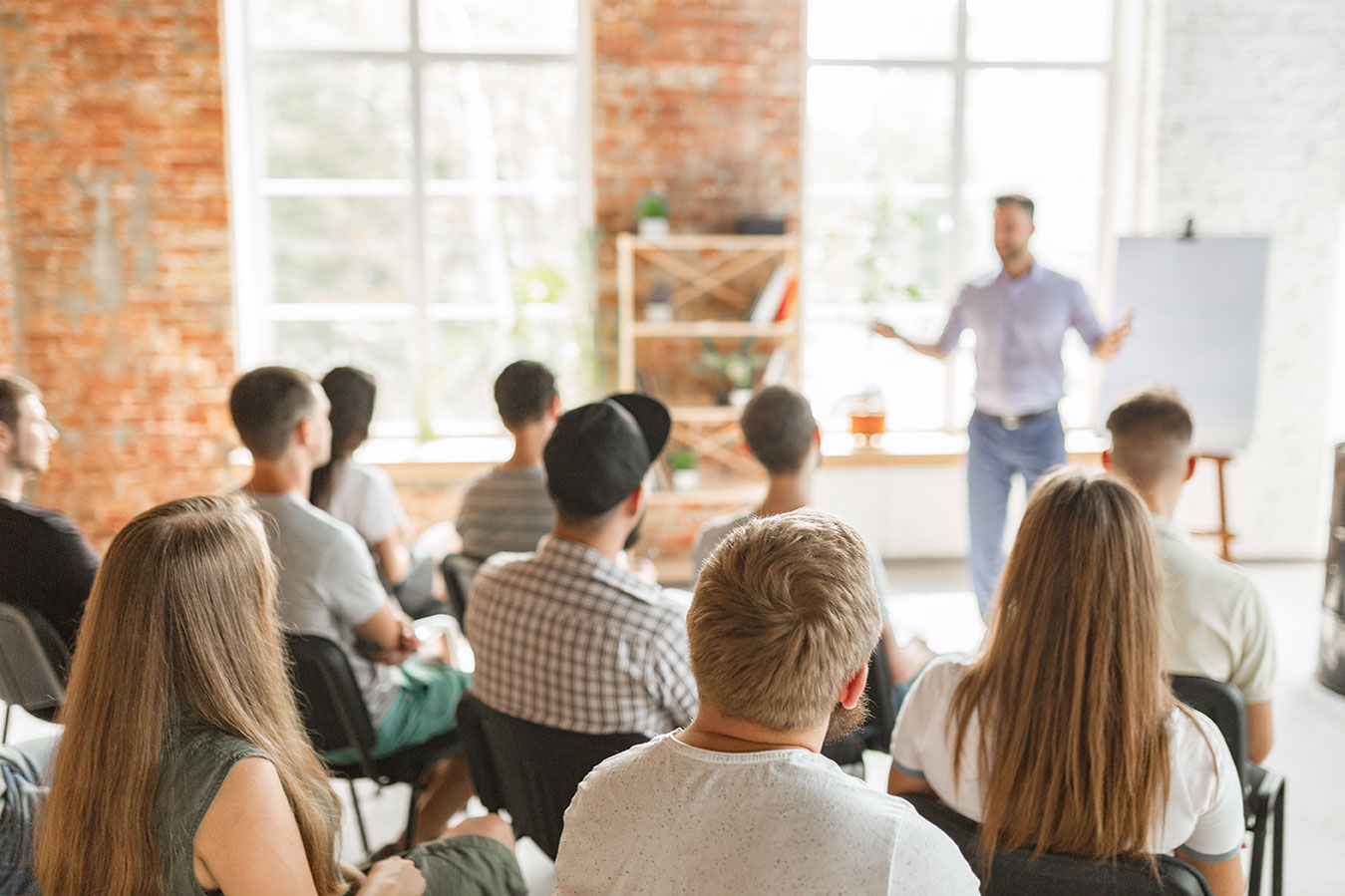Our path to a sustainable Bildungscampus
Our fields of action
It is important to us that all aspects and needs of the Bildungscampus are considered and that the concept of sustainability is understood holistically. This is the only way we can cover all dimensions of sustainability. To implement our sustainability strategy, we set clear goals and guidelines. The foundation for this is our five fields of action based on the United Nations’ (UN) Sustainable Development Goals (SDGs).
Our focus
The UN's Sustainable Development Goals consist of 17 global sustainability goals. Each goal explains how sustainable actions are possible for everyone and where action is needed. They form the basis for a humane life and a sustainable natural livelihood.
For the Bildungscampus, we are focusing on a total of eight goals to which we can make a significant contribution. These are summarized in the five fields of action and help us to implement the measures effectively and as needed.
#VisionZeroEmission
#VisionNaturalHabitat
#VisionCircularEconomy
#VisionGreenMobility
#VisionBeingHuman
Climate Neutrality & Energy Independence
#VisionZeroEmission
Promoting the climate-neutral and largely energy self-sufficient operation of the Bildungscampus.
On the path to climate-neutral operation
By reducing our greenhouse gas emissions, we want to help combat climate change. We support the goal of the Paris Climate Agreement to limit global warming to well below 2°C. To achieve this, we aim to permanently reduce our Scope 1 and Scope 2 emissions - the greenhouse gas emissions that are self-generated or released by our energy supplier according to the Greenhouse Gas Protocol. We are aiming for a 70% reduction by 2028 and complete greenhouse gas neutrality in this area by 2030. One component of this is for the campus to generate part of its own electricity and heating energy requirements from renewable sources. Therefore, the roofs of the Campus Ost, Mitte and Nord will be equipped with photovoltaic systems, and the heating and cooling curves and lighting in the buildings will be adapted.
Climate Resilience & Biodiversity
#VisionNaturalHabitat
Being prepared for meteorological changes and contributing to the preservation and promotion of native animal and plant species.
Creating new habitats and preserving diversity
Acting sustainably and responsibly also means preparing for upcoming climate changes and preserving habitats for animal and plant species. For this reason, we want to improve the quality of life on our sites by gradually increasing the greenery. The established bee colonies and other animal and plant species will also benefit from this, as they can use the flowering meadows as a natural habitat and food supply. For the biodiversity-promoting design, we are aiming for a Biotope Area Factor (BFF) of 0.4. In addition, we want to limit the equivalent temperature - the so-called perceived temperature - to below 35°C.
Circular & Sharing Economy
#VisionCircularEconomy
Promote the circularity of the Bildungscampus to minimize resource consumption.
Using resources sparingly and intelligently
At the Bildungscampus, we are advancing various measures in the context of circularity. It is important for us to reduce resource consumption overall and to rely on renewable raw materials. To achieve this, we will be using the Cradle-to-Cradle principle for the design and planning of new buildings. This approach pursues a fully circular economy, where raw materials are reused rather than newly added.
Increasing our recycling rate and thus reducing the amount of residual waste are also essential goals for us.
Our natural resources should be reused wherever possible, including water. In the future, we want to store rainwater and use it to irrigate our green spaces - and thus reduce our drinking water consumption by a quarter. Currently, this is done using drinking water, which supplies the flowering meadows with the necessary water quantities through drip irrigation.
Sustainable mobility for a good climate
We want to ensure health-promoting and climate-friendly mobility on and to the Bildungscampus. For students, the bicycle is and remains one of the most popular means of transport, including for routes through the adjacent city center. Promoting cycling infrastructure is therefore a logical step. For us, this includes several sharing offers for bicycles and e-scooters, sufficient bicycle parking spaces and up to six bicycle service points for repairs.
We also want to make a significant contribution to automotive e-mobility. By 2026, 15% of our public parking spaces on the Bildungscampus will therefore be gradually equipped with e-charging stations. This is also an important step for car sharing offers. With the help of systematic monitoring, we want to systematically record mobility-related emissions from 2028 and thereby check the success of the measures and adjust them if necessary.
Focusing on the community
In the future, we will place even more emphasis on a vibrant and welcoming campus to strengthen the values of social justice, equality, diversity and health.
The Bildungscampus should become a barrier-free place where learning and getting together is possible for everyone. The outdoor areas in particular will be designed in such a way that they achieve at least a score of 0.9 on the DGNB's “Barrier-free design” index.
To promote the health of people living on the Bildungscampus, the health network organizes regular workshops, events and medical check-ups.
We also want to report on this topic on campus and will therefore be publishing regular articles on our Bildungscampus channels on sustainability-related topics from 2024. We are convinced that each and every individual can make a contribution to sustainability and that real change is only possible through collaboration.
An important step towards inclusion - start of the pilot phase for period product dispenser at the Bildungscampus
The Bildungscampus Heilbronn is sending out a clear signal for inclusion and health promotion. With the start of the pilot phase for the new period product dispensers, we are taking an important step towards an even more liveable and needs-oriented campus.
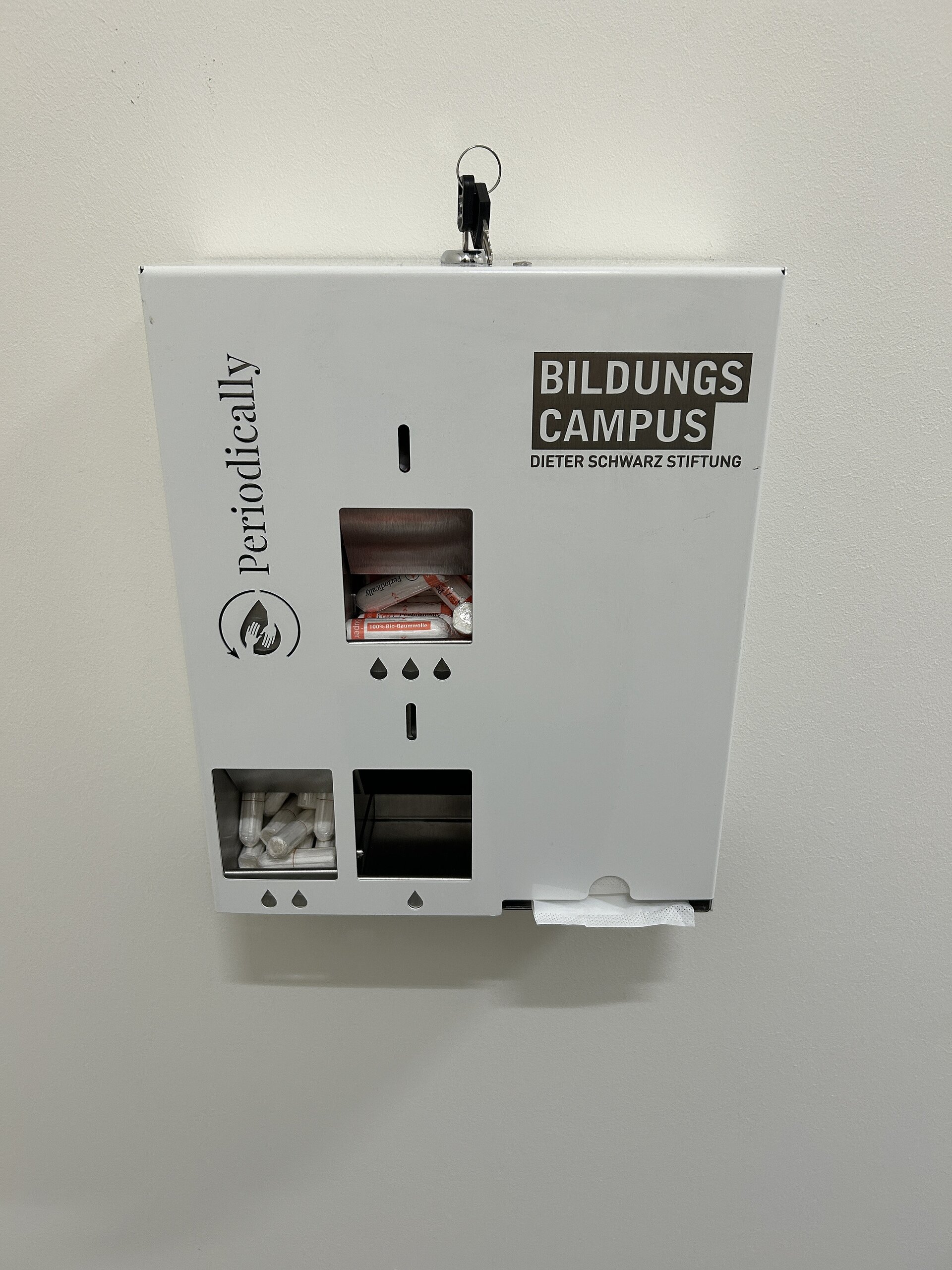
Make a statement: Orange The World 2025
Get ready: the global Orange The World campaign is starting!
From the International Day to End Violence against Women on 25 November until the Human Rights Day on 10 December 2025, people and organizations around the world will be setting a powerful sign for an end to violence against women and...

Diversity Day 2025 - Living Diversity together
On May 27, the Diversity Day 2025 took place at the Bildungscampus in Heilbronn - organized by the Heilbronn University of Applied Sciences as part of the nationwide action days of the Charta of Diversity.
As part of the campaign, it became clear how colorful the Bildungscampus really is!
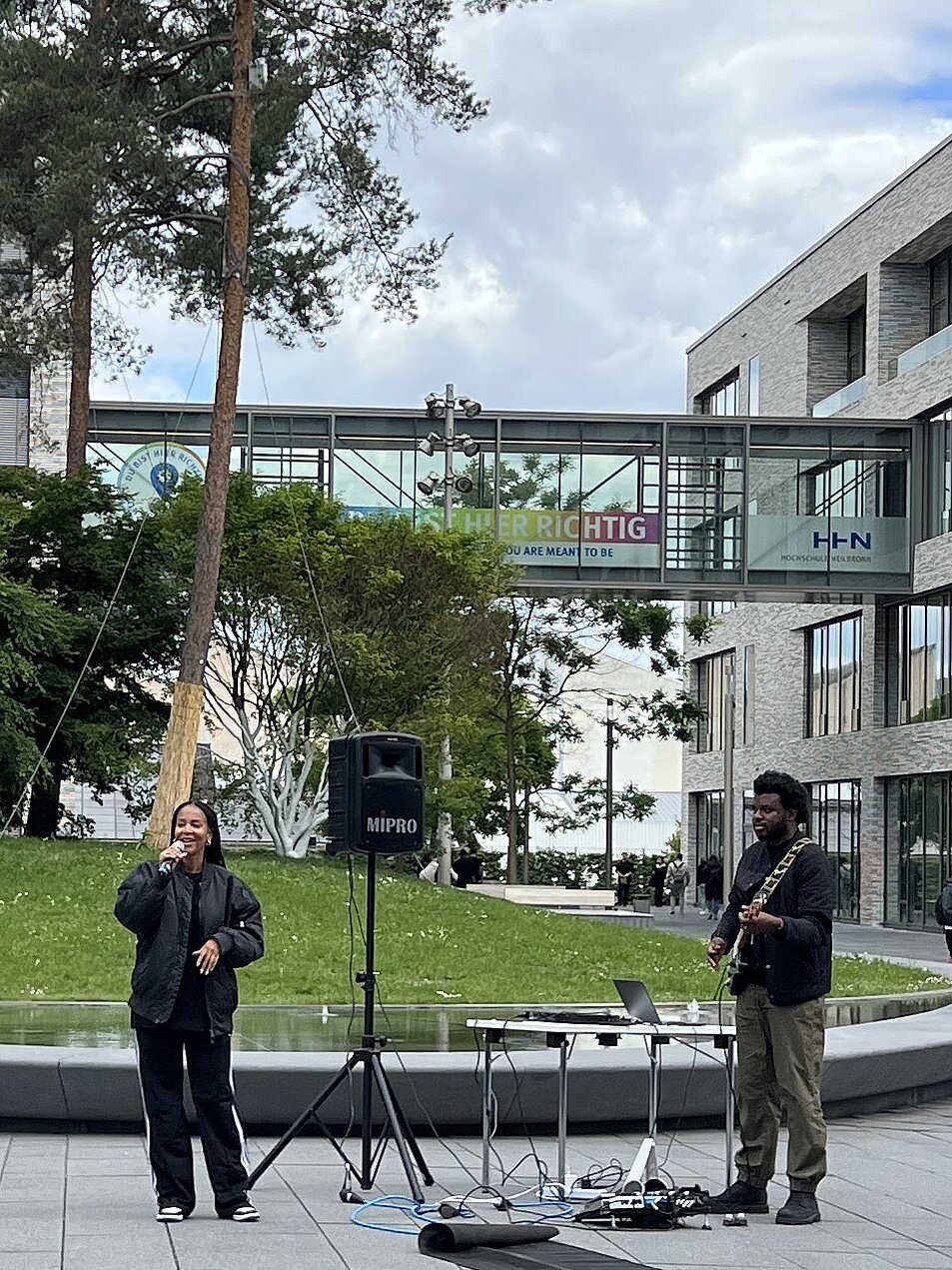
Bildungscampus operator joins WIR pact!
On behalf of the Dieter Schwarz Foundation, Schwarz Campus Service GmbH & Co. KG builds and manages all properties around the educational campus in Heilbronn. We have been a proud member of the Heilbronn WIR Pact since 2025. The WIR Pact is an initiative to strengthen the local community and promote a sustainable, liveable and prosperous Heilbronn. It creates an alliance between the city administration, companies, educational institutions, associations and other organizations.
For the Bildungscampus, joining the pact underlines its commitment to Heilbronn and the city's sustainability goals.
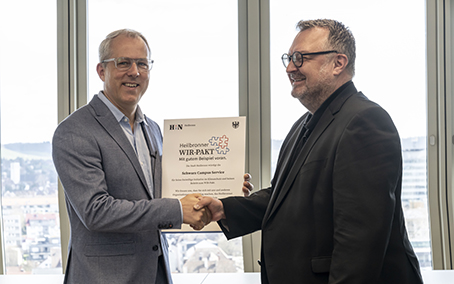
European Green Week event at the Bildungscampus: focus on sustainability
As part of this year's European Green Week, the Bildungscampus in Heilbronn provided exclusive insights into various sustainability topics on campus. The event, organized in collaboration with the Fraunhofer IAO, presented various sustainability-related research projects and invited active...
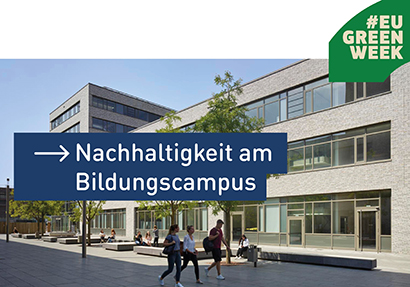
International Women's Day 2025
International Women's Day is an opportunity to draw attention to equal rights and gender justice. We therefore invite you to visit a special exhibition in our campus library (LIV) throughout March.

Member fairpflichtet
We have been a member of fairpflichtet since 31.07.24.
Fairpflichtet is the voluntary sustainability code of the German-speaking event industry, with ten guiding principles forming the framework.
Every two years, we sharpen our sustainability profile in order to maintain a high level of transparency in event management.
We members are players in the industry and are committed to ecological, social and economic sustainability.
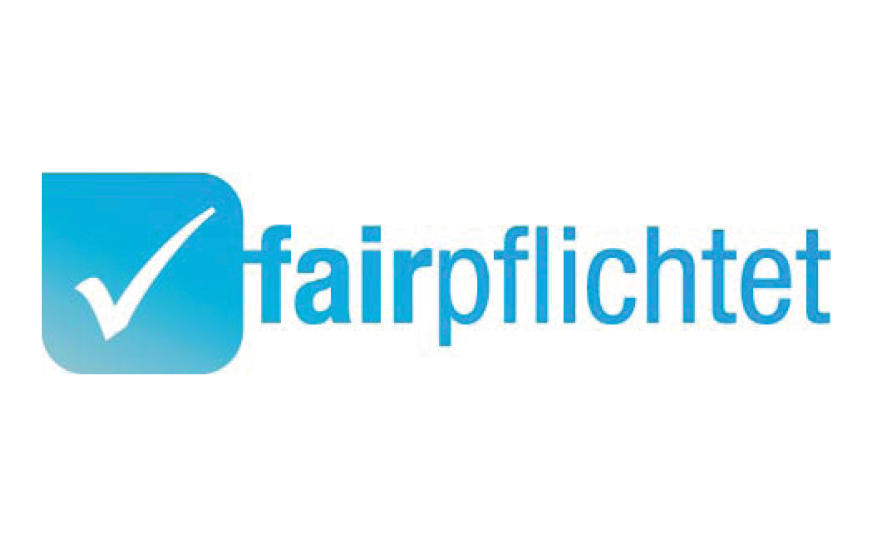
SDG Lab Heilbronn at the experimenta
At the “SDG Lab Heilbronn” event, organized by TUM Heilbronn and UNGSII, representatives from all over the world came together to talk about the 17 Sustainable Development Goals of the United Nations.
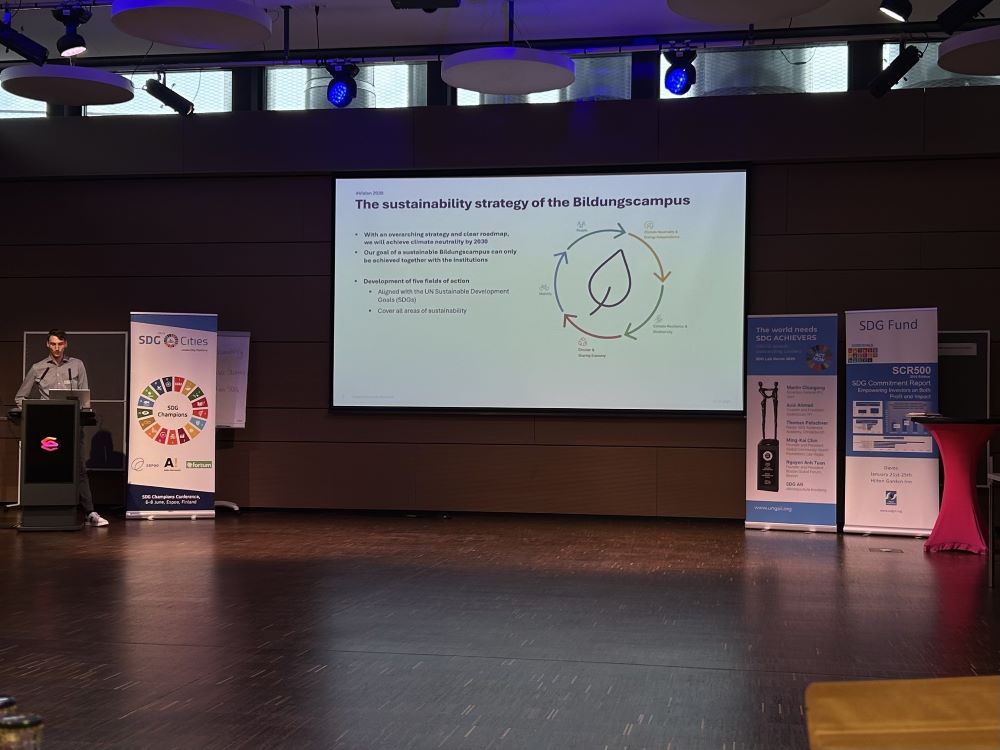
Blood donation at the Bildungscampus
In cooperation with the AStA Heilbronn University, a blood donation event was organized for the German Red Cross in the Forum. Students and employees of the Bildungscampus as well as all volunteers were able to donate. In total, we were able to get almost 100 people to donate blood - including more than 1/3 of new donors.

Lizards - habitat for sun worshippers
A new home has been created for our lizards in front of Parkhaus Ost. This offers optimal conditions: Piles of stones, open areas and small caves are important elements for basking, hiding, hunting and breeding. The small hunters are beneficial insects, as they eat pests such as aphids, mosquitoes and snails.
The active phase of the animals extends from April to October. Please observe the animals calmly and at a distance.
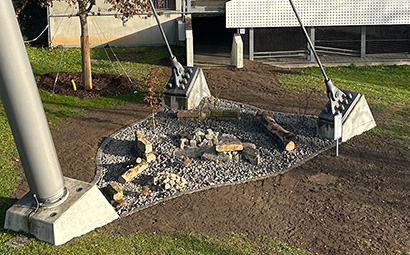
More accessibility - today and in the future
Around 13 million people live in Germany and face new challenges every day. On International Day of Persons with Disabilities, we want to draw attention to the needs of people with physical or mental disabilities. The topic is already firmly anchored on our campus in structural terms and, with the...
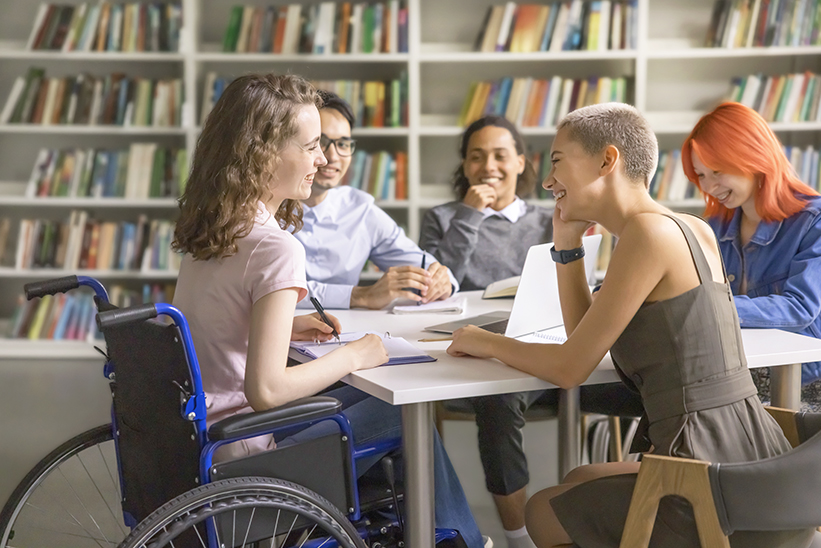
Providing BikeBoxes
To promote cycling mobility, a total of 24 BikeBoxes have been installed on the Bildungscampus. These provide a safe and weather-protected place to store bicycles and e-bikes. For removable e-bike batteries, you can also rent small BatteryBoxes on the Bildungscampus Ost. Both types of boxes have charging facilities. We hope this will encourage people to switch to (e-)bikes.
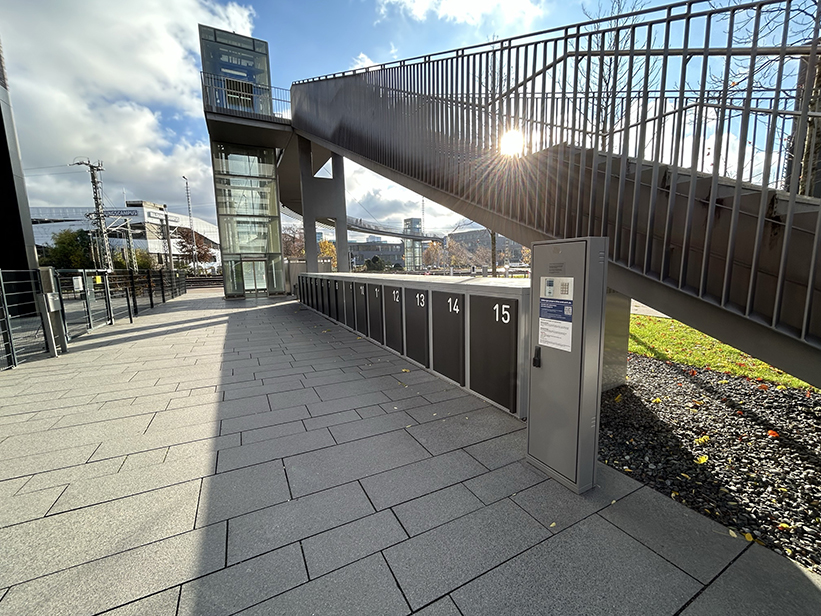
UN Climate Change Conference 2024: No more hot air ... please!
This year, state and government representatives will meet at the UN Climate Change Conference in Baku from November 11 to 22. Two of the most important topics this year are likely to be the climate finance plan and greenhouse gas emissions.
At the same time, global greenhouse gas emissions continued...
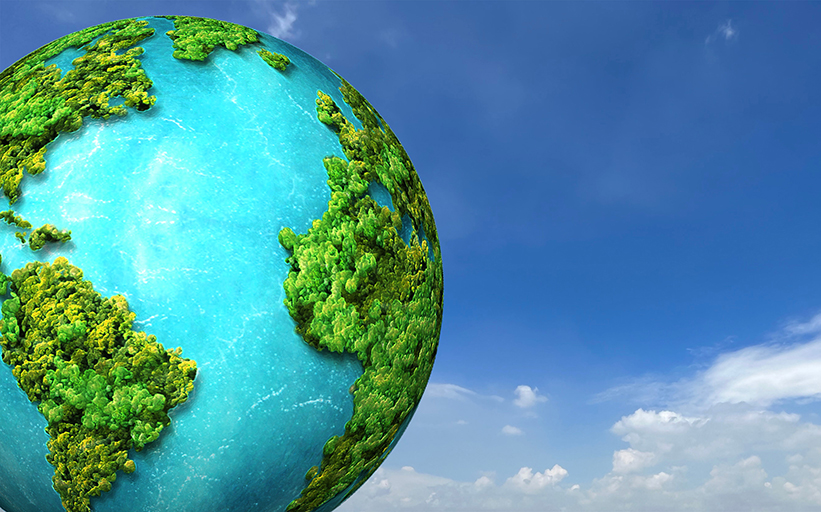
Greenhouse gas-neutral heat supply being planned
The Bildungscampus is receiving support for the planning of a local heating network powered by renewable energies - federal funding for efficient heating networks (BEW). This lays the first foundation stone for a greenhouse gas-neutral heat supply for the Bildungscampus.
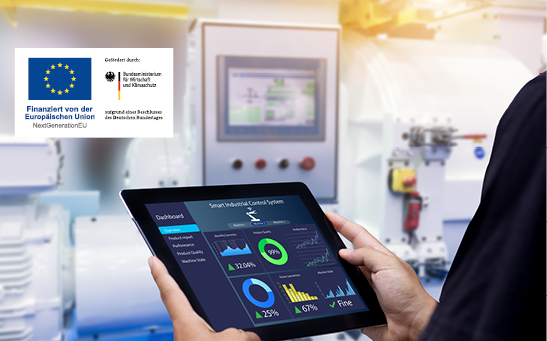
Creation of building resource passport
For the expansion of the Bildungscampus, we are planning to create building resource passports for our new buildings. This will include recording the Greenhouse gas emissions of the buildings over their entire life cycle (i.e. operating emissions and emissions generated during construction and demolition). The passports thus form a basis for optimizing the environmental impact of our new buildings.
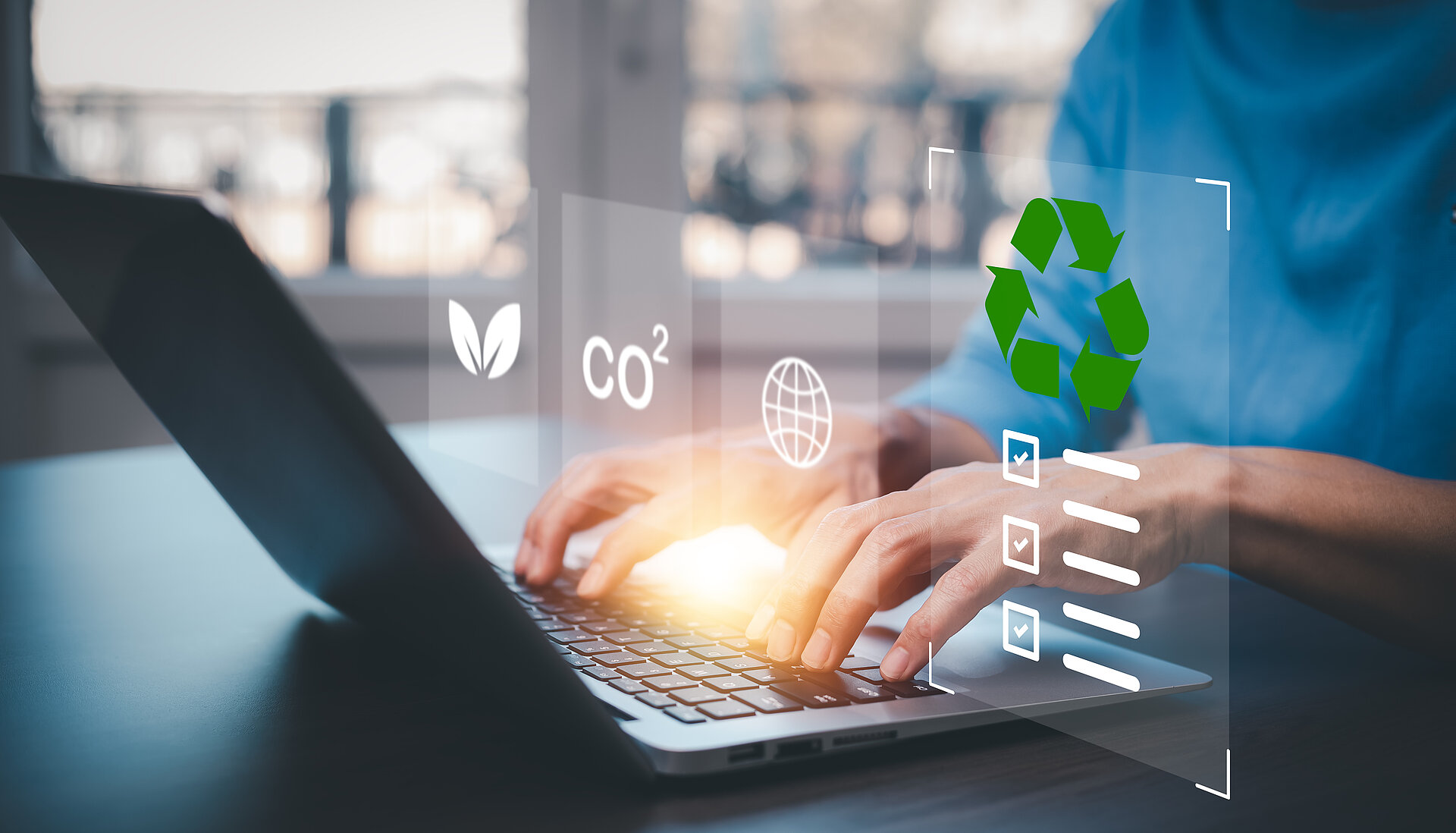
Typing campaign at the Bildungscampus
Together with the German Stem Cell Donor Center (DSSD), a typing campaign was organized at the Bildungscampus.
During the campaign, students and employees were able to be typed - by providing a saliva sample - and be included in the stem cell donor database. DSSD representatives were also on hand to provide information.
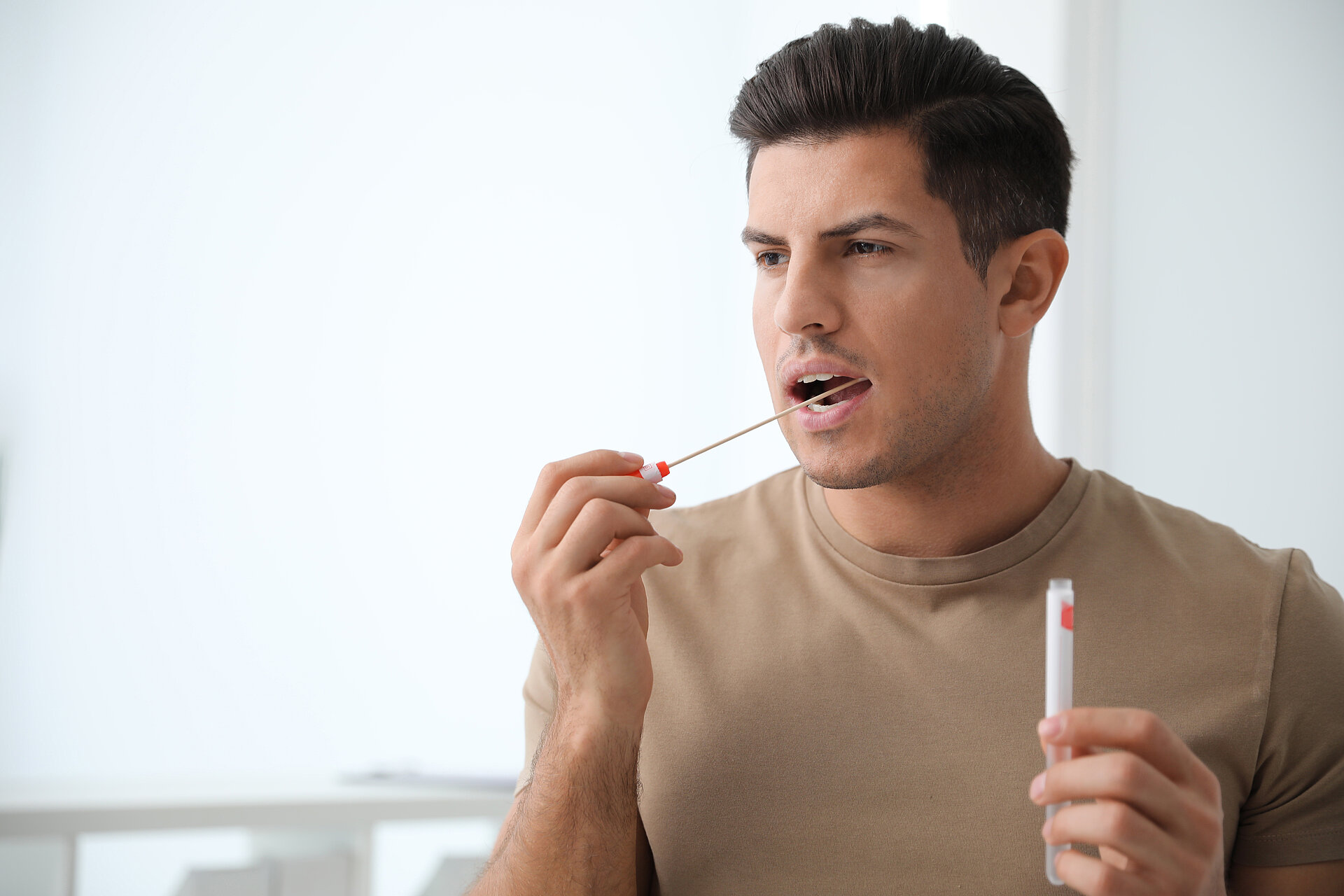
DGNB Platinum certification ‘Biodiversity-promoting outdoor spaces
At the UBI dialogue forum in Berlin, organised by the Business and Biodiversity Initiative, the Bildungscampus West was one of the first districts to be awarded the DGNB pre-certificate ‘biodiversity-promoting outdoor spaces’ in platinum. This highest level of certification recognises the outstanding planning of the campus.
KEFF+ Check
Together with the Regional Competence Center “Resource Efficiency”, we systematically review our energy consumption values as part of the KEFF+ check. The goal is to identify key consumers and initiate efficiency measures if necessary.
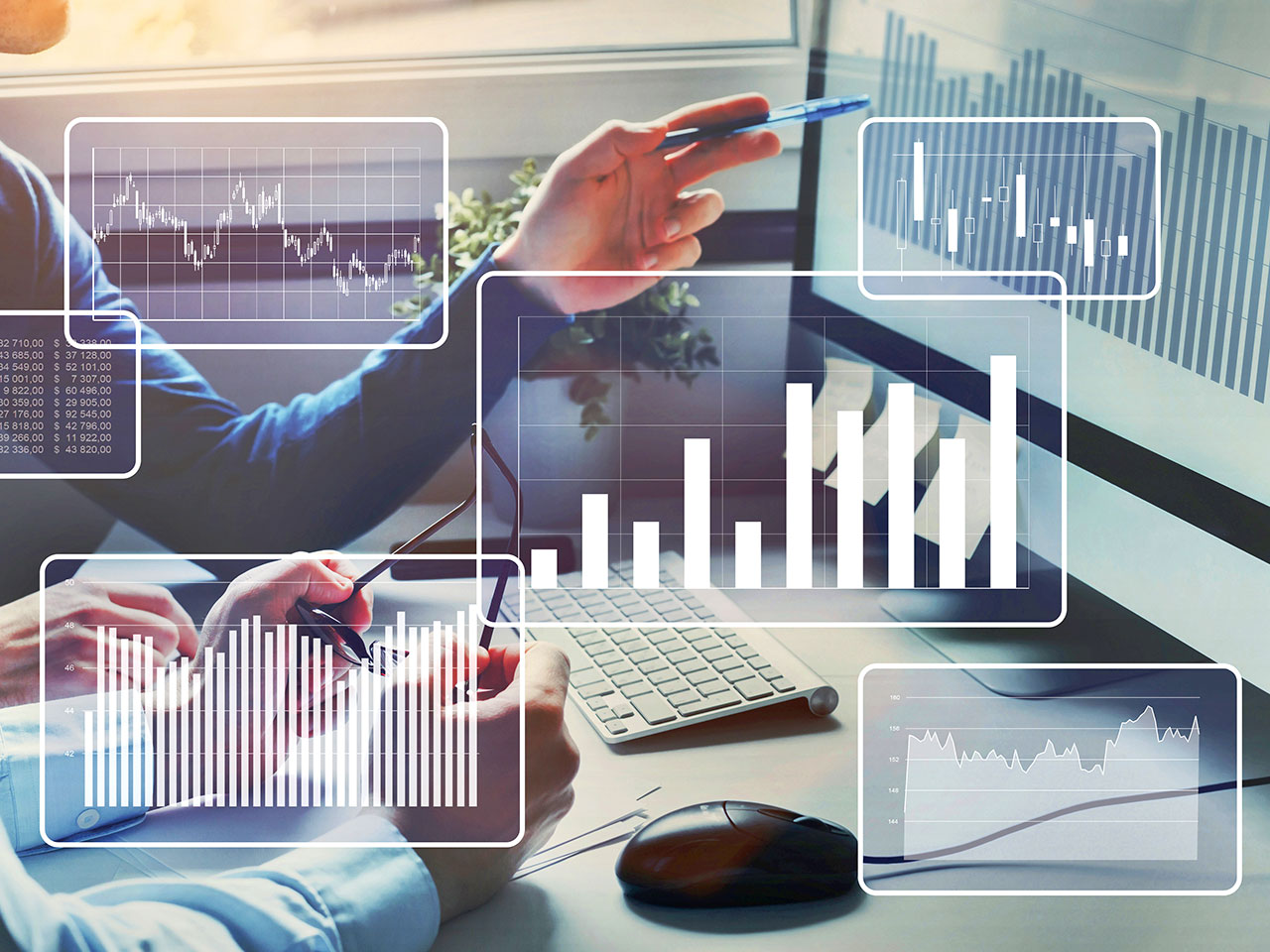
Installation of drip irrigation
A drip irrigation system was installed to irrigate our flowering meadows, which controls the water requirement using sensors. The research project is accompanied by the Fraunhofer IAO to find out how much drinking water consumption can be reduced through drip irrigation.
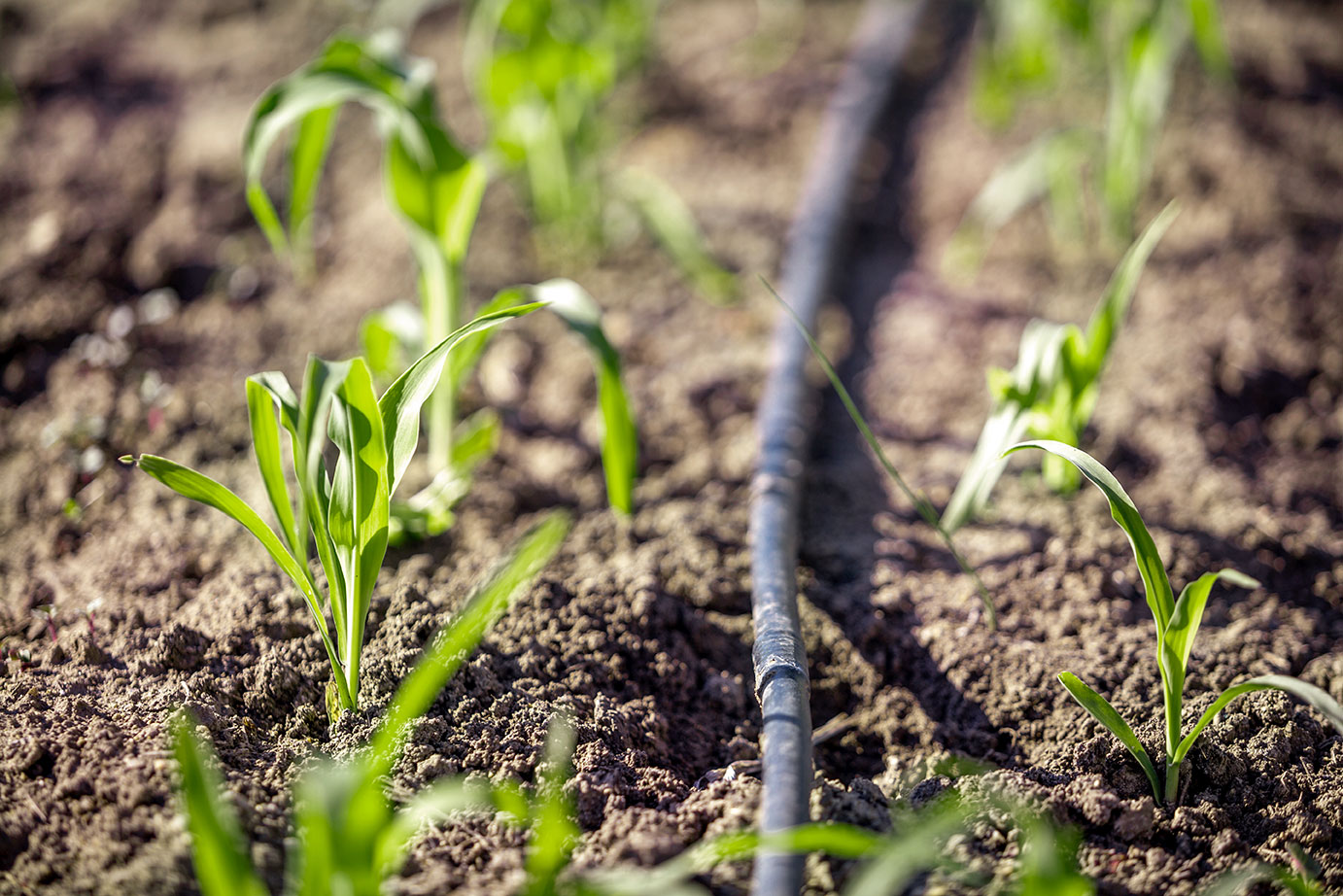
Expansion of the e-charging stations
To strengthen automotive e-mobility, the public parking garages on the Bildungscampus will be equipped with e-charging stations. In the future, up to 15% of the total parking spaces will have an e-charging station.
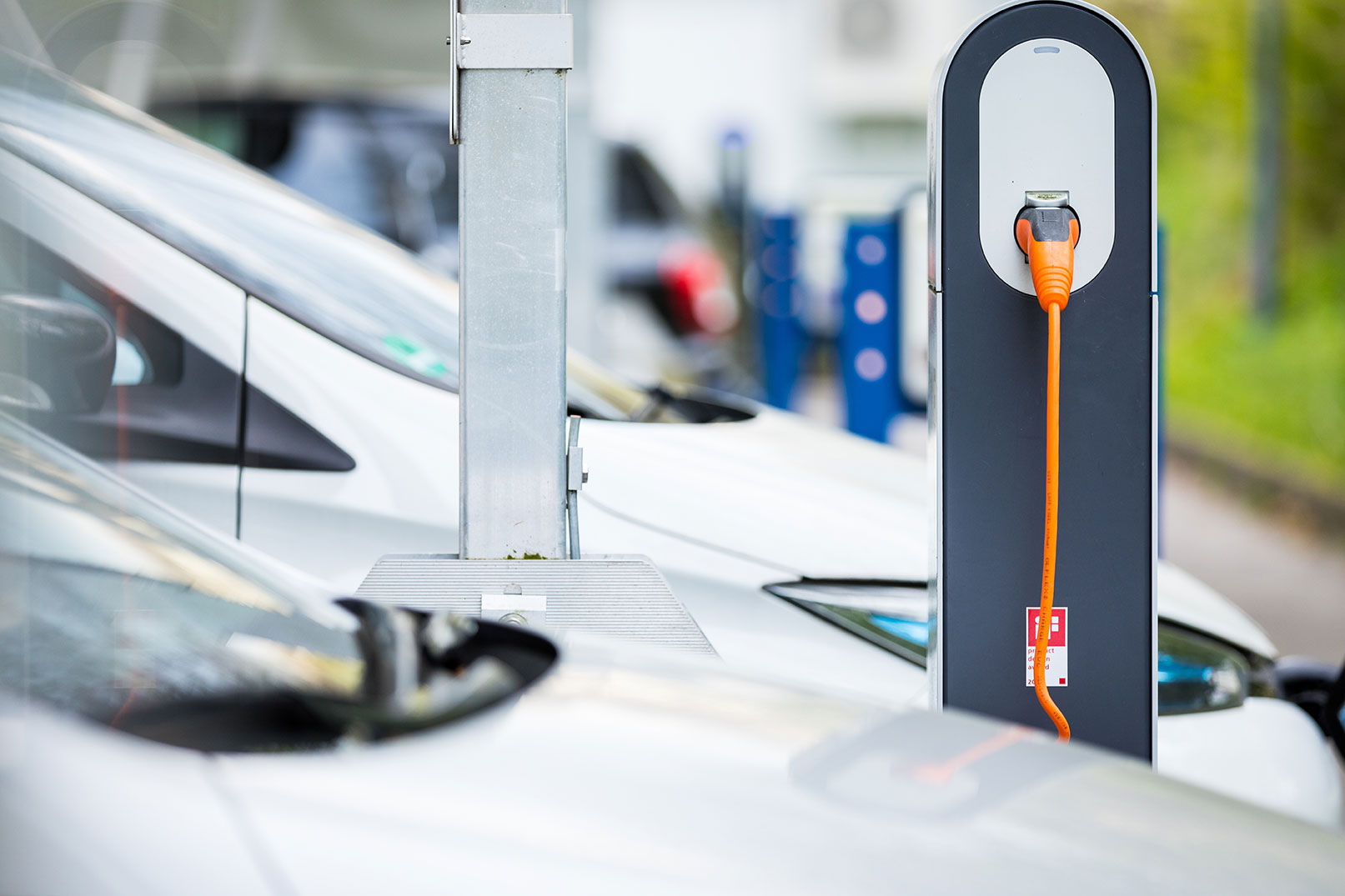
Installation of photovoltaic (PV) systems
The photovoltaic systems are installed to generate renewable energy for electricity and heat demand. They will be installed on the roofs of the buildings on Bildungscampus Ost, Mitte and Nord.
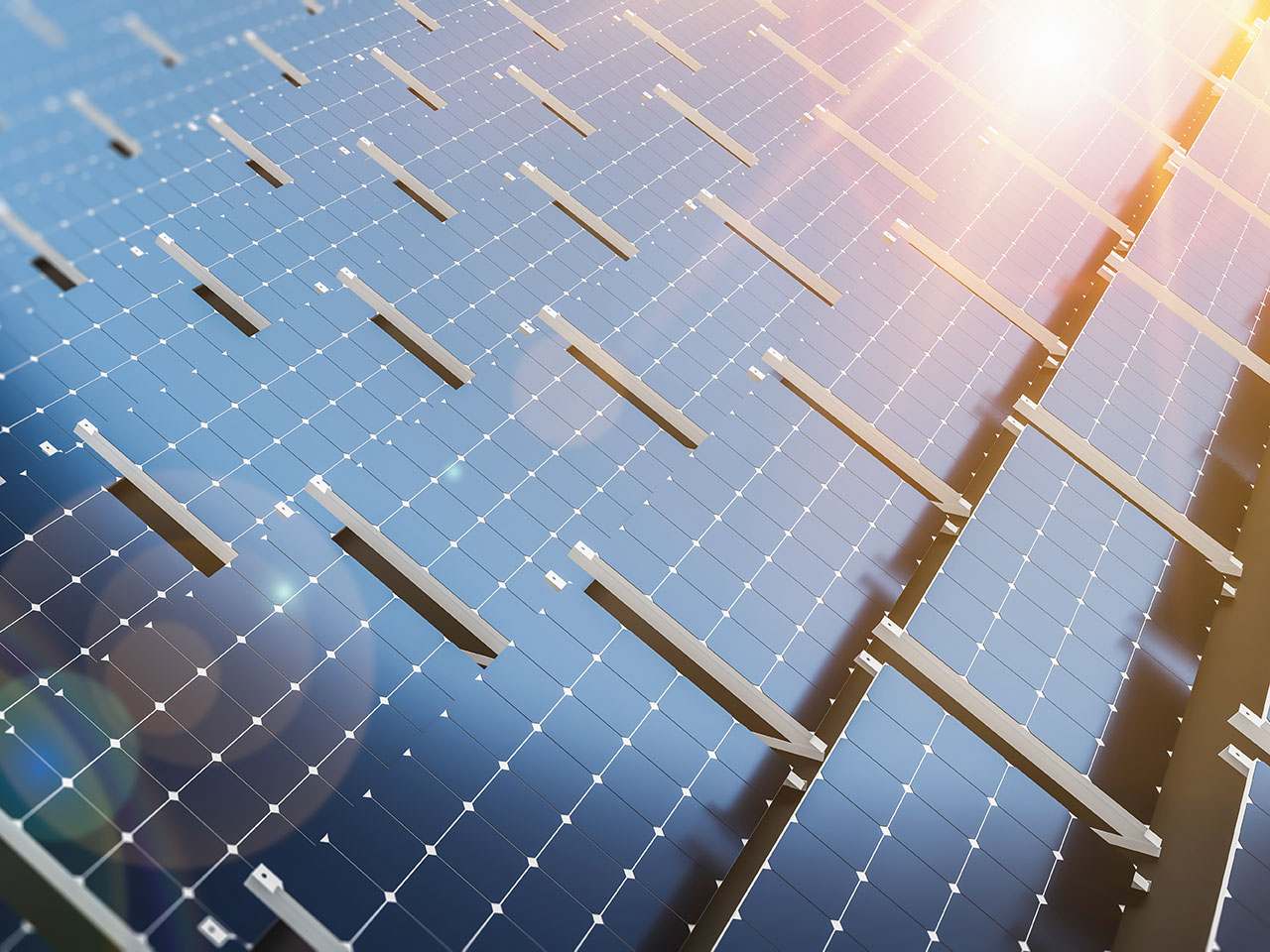
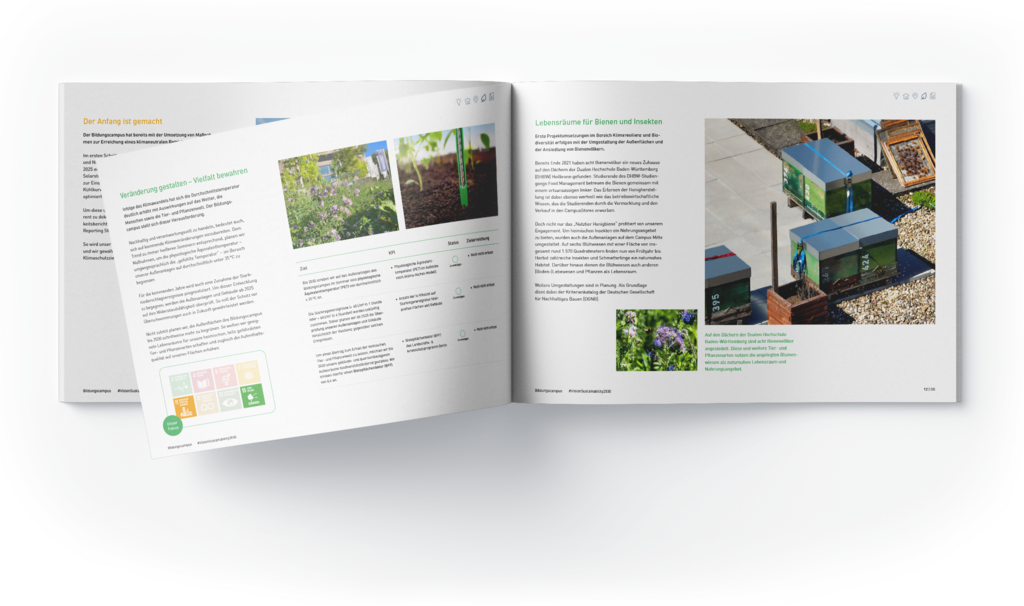
More about sustainability at the Bildungscampus
Find out more details about the fields of action and the measures within the framework of the sustainability goals for the Bildungscampus in Heilbronn. Read the entire sustainability strategy, which was developed under the motto #VisionSustainability2030.
More about sustainability and the Bildungscampus
Get to know the Bildungscampus of the Dieter Schwarz Foundation in Heilbronn
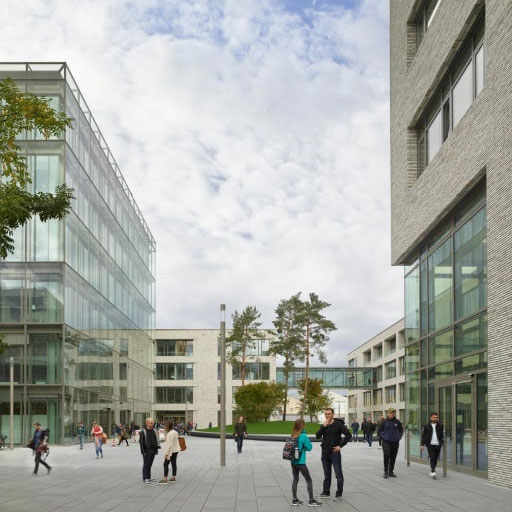
Find out more about our living lab projects in the section "Making the future smart"
